Skin Cancer, Precancer, and Sun Damage
We specialize in skin cancer surveillance, diagnosis, and treatment at Georgia Skin Specialists in Atlanta. Early detection and treatment are the best way to ensure a better outcome when it comes to skin cancer. Here’s a closer look at some of the most common skin cancer types that we help patients to overcome.
Examples of Abnormal and Cancerous Growths
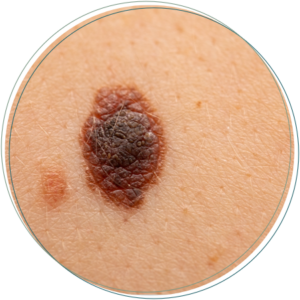
Abnormal Moles
Most people have moles, and most moles are non-cancerous in nature. Abnormal moles, or “atypical moles,” are often asymmetric, have multiple colors, irregular borders, and undergo changes in size and/or appearance over time. Atypical moles are not cancerous, but having them can predispose a person to developing melanomas. Anyone with a mole can schedule an appointment at our office with a board-certified skin cancer dermatologist, to determine whether their moles are normal or abnormal, and whether any moles should be monitored or removed. Most moles can be removed in a simple in-office procedure that leaves minimal scarring. If your doctor suspects that a mole is cancerous, it can be removed and then tested for further analysis.
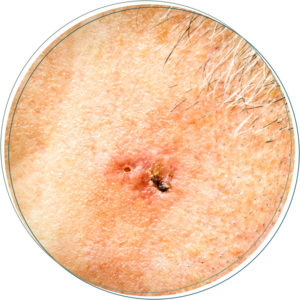
Basal Cell Carcinoma
Basal cell carcinomas are the most common type of skin cancer and actually the most common type of cancer of any organ. Basal cell carcinomas occur due to UV-induced cancerous changes to the skin over time and mostly appear on areas that have had extensive sun exposure. While they rarely metastasize, basal cell carcinomas continue to grow and can invade surrounding tissues and are best treated early and completely.
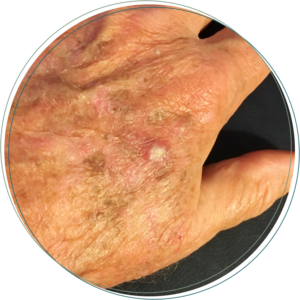
Squamous Cell Carcinoma
This type of skin cancer is most frequently caused by the sun, and usually manifests in parts of the body that are most exposed to the sun. In its early stages, it can appear as red, scaly or bleeding patches of skin. If caught early, squamous cell carcinoma is easily treated. Squamous cell carcinoma can be aggressive and if untreated may cause significant health problems including metastatic disease.
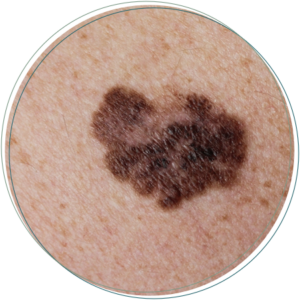
Melanoma
Melanoma is the most aggressive type of skin cancer. It is a cancer of the body’s pigment producing cells, melanocytes, and can occur in a preexisting mole or present as a new pigmented lesion on the skin. The most common type of melanoma is related to blistering sun burns and intense, intermittent sun exposure. However, melanoma can occur in areas including the bottoms of the feet or the genitalia that are not typically exposed to the sun. When caught early, melanoma is easily treatable with surgical excision.
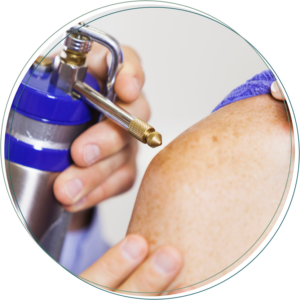
Actinic Keratoses
Actinic keratoses are common skin growths on sun exposed areas of the skin. Approximately 1-10% of actinic keratoses progress to squamous cell carcinomas. It is important to diagnose and treat actinic keratoses to prevent the development of skin cancer. They typically present as subtle persistent pink rough patches.
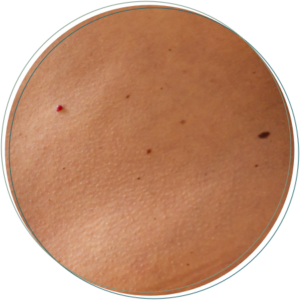
Solar Lentigos
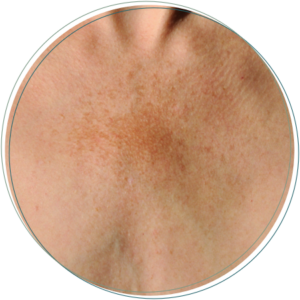
Melasma
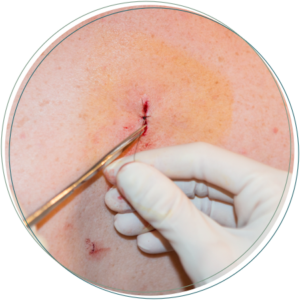
Skin Cancer Removal
Call Us for a Skin Cancer Exam
One of our experienced board-certified dermatologists at Georgia Skin Specialists can perform a thorough exam and diagnosis to determine whether a growth or discoloration needs immediate treatment. Contact our office to schedule a consultation with one of our doctors today, or click below to book online.



